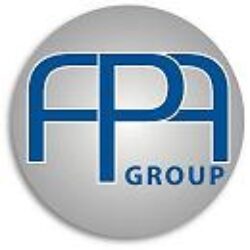Should I Pursue the new FP&A Certification?
As the AFP ups the ante in their marketing of the upcoming FP&A certification discussions are bound to come up around the question of who should pursue the certification and why the FP&A instead of one of the other certifications out there. In fact, in the FP&A Linkedin group I manage there has already seen discussion around this, so here is my take.
First, in the interest of full disclosure, I will be teaching the AFP’s review course for the FP&A beta exam. This may present the appearance of bias on my part, so make what you will of the fact, but I will give you objective reasons for my opinion and you can make up your own mind.
If Not the FP&A, then What?
There are only a few certifications that I would consider as potential alternatives to the FP&A if you want to add to your marketability and knowledge in the FP&A world. The CPA has the most credibility and best reputation of the big credentials and the CMA is another well respected credential that I have considered myself. There are others you might consider, but these are the two big ones that an FP&A professional might logically pursue if not for the new FP&A certification.
Consider Your ROI
Both the CPA and CMA are well known and well respected. But, there is no free lunch. To get either credential you will have to spend well over a thousand dollars in exam fees and study materials. You will have to invest many hours of study time as well. The time and money you spend will be spent somewhat inefficiently because the topics covered by both exams include some you may not use for your FP&A work. Knowledge is great, but we all have constraints and time and money are the big ones for most people.
Cost and Time Efficient
The FP&A certification covers a breadth and depth of knowledge in the specific areas most relevant to FP&A work. The exam content and the learning system were developed by very experienced FP&A professionals, so what you will get with this certification is focused and a much more efficient use of your time and money. As an added bonus, if you take the beta exam, which is in February 2014 you will spend much less money because the AFP is offering a huge discount for the beta exam fees and the learning system (study materials for the exam). Another time drain you avoid with the FP&A certification is the application process. The AFP’s process is streamlined compared to the others. This may change over time, but for now the application process is quick and painless. That cannot be said for either the CPA or CMA.
Prioritize
If you really feel strongly about getting a CPA or CMA credential, I would pursue either after I got the FP&A. Credentials and knowledge are great to have, but if I am going to spend time and money on something to advance my career I want the most bang for my buck. That includes a return on my time invested. The knowledge you will gain studying for the FP&A exam will benefit you much more if you work in FP&A than the knowledge you gain from any other exam prep.
Summary
Simply put, the FP&A credential is going to be one of the best things to happen to our profession in a long time. People don’t yet recognize it as much as the CPA or CMA because it has not even made its real debut yet. The first exam is in February 2014. As the AFP gets the word out more and more about the credential it will gain recognition and the certification will mean more to other people. Being one of the first to get the FP&A credential will have more cache than you think as time passes. Don’t overthink it. Register for the exam, get the study materials and start studying. Before you know it, February will be here and gone and if you studied well you will be a freshly minted Certified Corporate Financial Planning and Analysis Professional.





